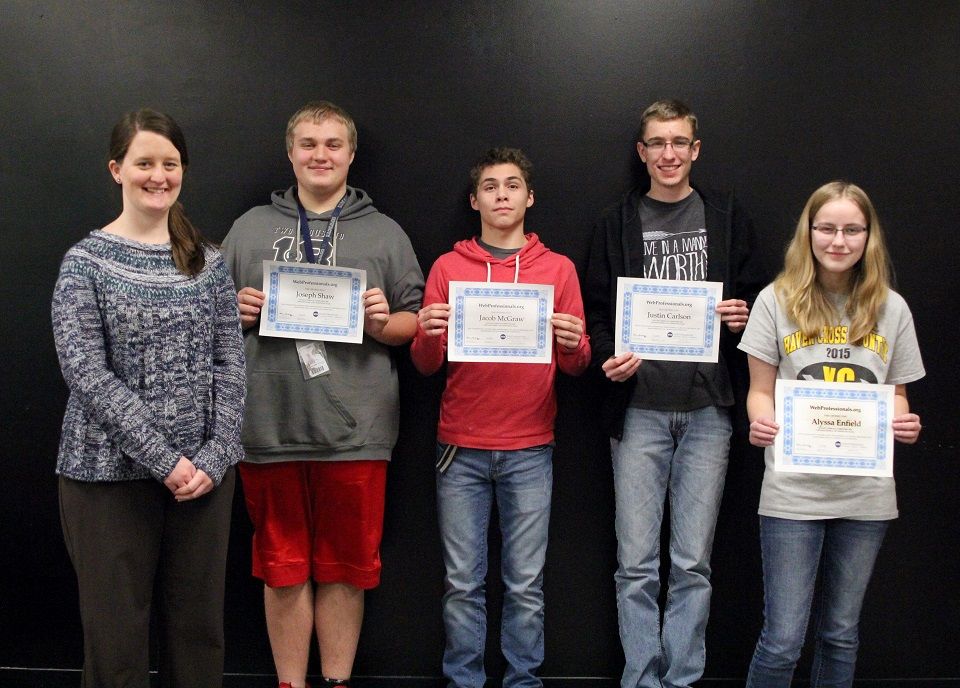Blog
The Important Role of STEM Curriculum in Middle School and High School Education

In the rapidly evolving landscape of education, the integration of STEM (Science, Technology, Engineering, and Mathematics) curriculum at the middle school and high school levels has emerged as a transformative force. This article explores the multifaceted importance of STEM education during these critical years of academic development, shedding light on the impact it has on cognitive growth, career readiness, and the cultivation of essential skills that prepare students for the challenges of the 21st century.
Every educator and parent knows how science and contextual learning excite students. Sadly, so much focus and attention on high stakes exams has pushed aside exploration and discovery in favor of test prep. However, STEM brings contextual, exploratory and discovery learning back into the classroom. STEM, by definition, is multidisciplinary. You cannot teach engineering or technology without including science and mathematics.
STEM includes career and technical education (CTE) subjects like web design, coding, robotics, game design, animation, sustainability, electrical engineering, plumbing, construction, and much more. Great STEM and CTE courses also teach soft skills alongside technical skills to help learners prosper to become whole professionals in their field of study. It is in the critical soft skills where students engage in writing, communication, leadership, ethics and time management. Great STEM programs offer students the opportunity to work in collaboration and the chance to both be a team member and other times be the team leader. Arguably, no student should ever exit secondary education without a solid foundation in STEM.
Sometimes we forget that hands-on experience does not require some physical manipulatives. Hands-on learning means a focus on doing something real and with real purpose. Coding a game design is hands-on if what is being created has a commercial purpose. Creating an animation is hands-on if the project has the learner building something tangible for a client (whether real or fictional). STEM learning, when done right, is always contextual. Physics is a great example: so much of physics is directly applied in engineering, trade careers, game coding, sustainability, electronics and robotics.
Let's look at some of the ways STEM curriculum impacts students:
Fostering Early Interest and Curiosity
Middle school and high school mark a pivotal period in a student's academic journey, and it is during these years that curiosity and interest in specific subjects often begin to crystallize. STEM curriculum plays a crucial role in fostering early interest in science, technology, engineering, and mathematics by offering hands-on, interactive learning experiences. These experiences go beyond textbooks, allowing students to engage with real-world applications of STEM concepts.
Exposing students to the excitement of conducting experiments, building prototypes, and solving real-life problems ignites a passion for exploration. By capturing the imagination of young minds, STEM education lays the groundwork for future scientists, engineers, and innovators, encouraging them to pursue further studies and careers in STEM fields.
Developing Critical Thinking and Problem-Solving Skills
Middle school and high school are formative years where students develop essential cognitive skills that shape their academic and professional trajectories. STEM curriculum places a strong emphasis on critical thinking and problem-solving, providing students with the tools to analyze complex issues systematically.
Through hands-on projects and collaborative problem-solving activities, students learn to approach challenges with a scientific mindset. This not only enhances their academic performance but also equips them with skills that are universally applicable across various disciplines and real-world scenarios. The ability to think critically and solve problems strategically is a cornerstone for success in higher education and the workforce.
Preparing for Future Careers
As the global economy becomes increasingly reliant on technology and innovation, STEM-related careers are in high demand. Middle school and high school serve as crucial periods for students to explore and prepare for future career paths, and a robust STEM curriculum ensures that they are well-equipped for the opportunities that lie ahead.
STEM education introduces students to the breadth of career possibilities within science, technology, engineering, and mathematics. Whether it's coding, biomedical research, environmental science, or robotics, exposure to these fields during middle and high school allows students to make informed decisions about their educational and career paths. Moreover, it instills a sense of purpose and direction, motivating students to pursue higher education in STEM disciplines. We often tell kids to grow up and do what makes them happy, but no one is happy every day. Not every day at the office (or working at home) will be fun, but when someone has a sense of purpose it propels them forward to do their best everyday.
Bridging the Gender Gap
Historically, STEM fields have grappled with gender disparities, with fewer women pursuing careers in science, technology, engineering, and mathematics. Middle school and high school are pivotal stages for addressing this gender gap, and a well-designed STEM curriculum plays a crucial role in promoting inclusivity and diversity.
By offering engaging and accessible STEM courses, schools can break down stereotypes and encourage both male and female students to explore their interests in these disciplines. Initiatives that highlight the achievements of women in STEM serve as powerful inspiration, challenging traditional norms and fostering an environment where all students feel welcome and empowered to pursue their passions.
Cultivating Collaboration and Teamwork
The ability to collaborate effectively is a key skill required in the modern workforce. STEM education in middle school and high school emphasizes teamwork through group projects, problem-solving challenges, and collaborative experiments. These activities not only enhance academic learning but also instill interpersonal skills that are vital for success in any profession.
By working together on STEM projects, students learn to communicate ideas, delegate tasks, and leverage each other's strengths. These collaborative experiences mirror the collaborative nature of many STEM professions, where interdisciplinary teamwork is often the catalyst for groundbreaking innovations. The social skills developed through STEM education are transferable to various aspects of life, preparing students for a future that demands effective communication and collaboration.
Adapting to Technological Advancements
The 21st century is marked by rapid technological advancements that influence every facet of society. Middle school and high school students are digital natives, growing up in an era where technology is an integral part of daily life. A well-designed STEM curriculum not only leverages this familiarity with technology but also provides students with the skills to navigate and contribute meaningfully to the digital landscape.
From coding and programming to data analysis and digital communication, STEM courses in middle and high school nurture digital literacy. This not only prepares students for the evolving job market but also empowers them to be responsible and informed citizens in an increasingly tech-driven world. STEM courses inspire students to ask questions, seek answers, and explore the uncharted territories of knowledge. This curiosity-driven approach not only contributes to academic success but also prepares students for a future where adaptability and a thirst for knowledge are essential attributes.
Conclusion
The integration of STEM curriculum in middle school and high school education is instrumental in shaping well-rounded, intellectually curious individuals prepared for the challenges and opportunities of the 21st century. By fostering early interest, developing critical thinking skills, preparing for future careers, bridging gender gaps, cultivating collaboration, adapting to technological advancements, and encouraging lifelong learning, STEM education serves as a catalyst for personal and societal growth.
As educators and policymakers recognize the transformative impact of STEM education, efforts to enhance and expand STEM programs at the middle and high school levels become paramount. The investment in STEM curriculum during these crucial years not only empowers individual students but also contributes to building a workforce that is innovative, diverse, and well-prepared to tackle the complex challenges of our rapidly advancing world.
At CTeLearning, we are passionate about STEM education and love working with teachers, students, and parents across the country. Reach out to us today by clicking here or calling us at 913-764-4272. We will be happy to show you in a free 30-minute demo how our curriculum can help prepare your students for future success.
Get in touch with us today!
You can book a demo directly using Calendly, call us directly at 913-764-4272 or 877-828-1216, or submit the form below and we will reach out to you.
We look forward to helping you and your students.

Most Recent Posts


About Us
Whether you are a big institution, small school or an individual seeking a new career path, our curriculum is for you.
Request a free demo of our curriculum today to see how you can help fuel our future world.
Get In Touch
PO Box 398 Olathe, KS 66051
hello@CTeLearning.com
Phone: 913-764-4272
Toll Free: 877-828-1216
Fax: 866-307-8112
Email: info@ctelearning.com
Quick Links
All Rights Reserved | Support Learning, Inc.
Web Design by Tekkii


